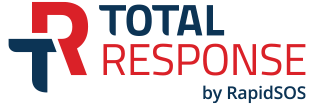Agency Profile
Dyersburg 911 (located in northwest Tennessee) handles dispatch operations for Dyersburg Regional EMS (6 ALS units), Dyersburg police Department (62 full-time commissioned officers), and the Dyersburg Fire Department (3 stations, 55 full-time firefighters), as well as calls to the City of Dyersburg’s 311 non-emergency number.
Staff consists of 14 full-time dispatchers with four console positions. Each recruit dispatcher is required to complete 800 hours (5 months) of basic training and certification prior to assignment as a 911-call taker/dispatcher. During this period, dispatch recruits are required to attain certifications in Emergency Medical Dispatch, Fire Service Dispatch, and Law Enforcement Dispatch. Upon completion of their basic training, each operator is also required to complete 24 hours of annual continuing education.
Challenge
Prior to transitioning to PowerPhone’s Total Response call-handling solution, Dyersburg 911 felt constrained by their current vendor’s call-handling system and sought a flexible solution that empowered their staff to combine all available resources with their training, experience and common sense to best assist callers.
Director Mark Grant explained the feeling of constraint from their vendor’s system:
”Their protocols were very strict in the methodology and applications. There was little room for flexibility. We noticed additionally that our staff was becoming “call taker robots”, following a strict protocol vs having the protocol as a “guide” which provided flexibility.
Dyersburg 911 wanted an opportunity to craft their call-handling operations around their own standard of care. The longer Dyersburg 911’s operations propped up their vendor’s standard of care, the more evident the strain became.
Because the vendor allowed no ability to refine or alter their processes, Dyersburg 911 began searching for a public safety call-handling solution that would reflect their standard.
Reliance on their current vendor’s rigid protocols was weighing down dispatch time and performance. This problem was amplified by the clunky interface between their CAD system and call-handling system.
Director Grant explains how the current protocol system was hurting Dyersburg 911’s ability to meet NFPA call processing standards:
”We also observed that the protocol was having a negative impact on meeting NFPA call processing standards. Their protocols are difficult to use, and in my opinion, confusing.
Additional delays were caused because Dyersburg 911’s CAD system lacked a smooth interface with their call-handling operations.
Solution
Director Grant explains:
”We started to evaluate other systems; we selected the PowerPhone Total Response System, which is integrated with our CAD. The call begins in CAD. Once we get the initial address and basics of what is happening, we immediately dispatch the call, then return to the caller to continue patient/caller assessment, additional questions and pre-arrivals, which is handled through Total Response. The data is transferred to the CAD record and immediately to the responder MDT’s.
Total Response provided a flexible approach that supported Dyersburg 911’s standard and utilized software that smoothly interfaced with their CAD. Dyersburg 911 fully embraced Total Response and has seen immediate and lasting benefits. Director Mark Grant credits Total Response with improvements to staff morale and improved dispatch times:
”For our agency, we process approximately 120,000 calls each year. The vast majority come in through our 311 non-emergency system. We have found that PowerPhone has been a perfect fit and partner for our organization, and we recommend them. Cost, although not a driving factor, was far more affordable than the other vendor.
PowerPhone and Dyersburg 911 have worked closely together from implementation through go live to provide the right level of emergency call handling to their citizens. Dyersburg 911 uses Total Response for handling emergency medical, fire and law enforcement calls.





